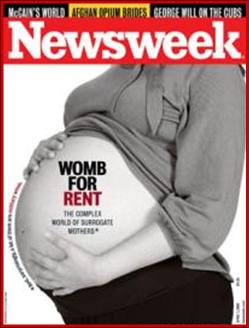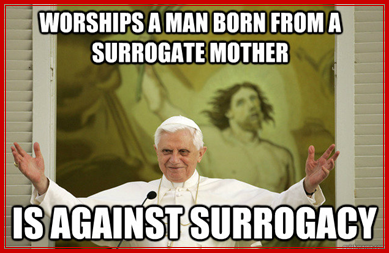Let’s Suppose An Angelic Conversation Took Place In Heaven...
For the sake of argument, let's suppose there were two angels holding a conversation in heaven, talking about this. The conversation went something like this,
1st angel: You know, I believe those people on earth are starting to really get close to the truth of the bible, and close to discovering the true meaning of the "sacred secret" of God. The Divine Secret we know that's mentioned at Revelation 10:7. They are finally coming to understand how the "sacred secret" of God has PERSISTED for so long, for so many centuries, and why the apostle Paul himself spoke of God's purposes as being a great "mystery" which was perceived to be a "hazy outline" [footnote: literally "obscure expression"] to him personally and to all 1st century Christians. (1 Corinthians 13:12 NWT) Imagine that! Paul said the Word of God was an "OBSCURE EXPRESSION" to him, an inspired apostle. What do you think of that?
But we angels in heaven are so annoyed when we constantly hear these preachers and religious ministers on earth saying, the bible nowadays is fully understood by good, churchgoing, “holy ghost people!” What a joke!
Anyway, these few people on earth are finally coming to understand this important fact about Genesis 3:15, and because of this, they can now get a MORE ACCURATE understanding of Genesis 3:15 as properly referring to ANOTHER promised Messiah coming to earth.
2nd angel: Yes, I totally agree. And if they can finally come to understand the true essence of Genesis 3:15 and its full importance upon mankind, then as you said, the whole bible will make total sense to them! They won't be like Paul and first century Christians anymore. No, but they will now have a MORE ENLIGHTENED viewpoint of things. They would now understand the "sacred secret" of God, mentioned in Revelation 10:7. The “Word of God,” will no longer be "AN OBSCURE EXPRESSION" to them! - 1 Corinthians 13:12 see footnote large print Ref. NWT.
And what's more, the verse in 1 Corinthians 13:9, 10 would make more sense. Let's consider this rendering found in the New Living Translation:
"Now our knowledge is partial and incomplete, and even the gift of prophecy reveals only part of the whole picture! But when the time of perfection comes [or "when that which is complete arrives" NWT, suggesting the coming of a 2nd Messiah after Jesus] these partial things will become USELESS."
Of course, up here in heaven all us angels know the Wicked Devil doesn't want that to happen, and doesn't want people on earth to come to a proper understanding of this most important prophecy, namely Genesis 3:15. No way does he want this! Because then, these people would be “caught away to God,” as Revelation 12:5 says of the miraculous heavenly ascending of the “Male Child.” (Isaiah 66:5-9) No way, Satan wants that!!! No way.
1st angel: That’s right! The “Male Child” would then finally come to know this one, all-important mistake and misconception about the coming promised "Messiah" that has been perpetuated for so long by all the churches (Jehovah’s Witnesses included), namely that Jesus is the promised "seed" spoken of in Genesis 3:15. Miraculously, they would now come to know this great truth, namely:
THE MESSIAH IS TO COME FROM ADAM & EVE IN THE LAST DAYS!!!
This is what Genesis 3:15 is really saying. WOW!!!
Of course, everybody on earth knows Jesus is NOT to be considered a fleshy descendant of Adam & Eve.
Many Pastors (not all of course) of some churches attempted to derail this important point by suggesting the "woman" in Genesis 3:15 pictured "Mary".
The Watchtower Society attempted to derail this important point, by saying the "woman" of Genesis 3:15, pictures God's Heavenly Angelic Organization. Of course the obvious flaw with this teaching is that Jesus created the Heavenly Angelic Organization, and it’s a known fact he even existed for a period of time before there ever was an angelic heavenly organization. So Jesus didn't come from this so-called heavenly "woman" at all. But, instead they came from Jesus, with Jehovah's Approval! So, that doctrine is dead from the start.
2nd angel: And too, the churches who say the "woman" is Mary, overlook the obvious fact if you say the "seed" comes through Mary, you are still saying that the "seed" still came from Adam & Eve. You can't separate that fact. -- See Genesis 4:25; 12:3; 17:5; 22:17, 18; 2 Samuel 7:11-15; Psalms 89:3, 4
1st angel: Its really good, a small band of faithful Ex-Jehovah’s Witnesses called the YORWW Congregation since 1991, with the help of Jehovah (and Jesus) through much prayer and meditation, understood these facts and were undeterred, undaunted in their relentless pursuit of obtaining the truth and spreading the truth to all who would listen. - See www.yorww.com/history.htm for more information.
2nd angel: And it’s such a shame that many Jehovah’s Witnesses we can see on earth and know of, have vilified them, and closed their ears to anything said by these poor, trodden down people (called “Living Waters” people on the internet). Obviously, the Governing Body of Jehovah’s Witnesses and/or Watchtower Society had something to do with that. But then, Jesus promised Satan would make sure all true disciples of his would be "HATED WITHOUT CAUSE." (Psalms 35:19; Psalms 69:4; John 15:25) Jehovah Witnesses have been taught to hate “apostates”, which means they always attack the "messenger" and NOT the message ad hominem style. And Jeremiah the prophet we know said that was the way they always treated him, with utter contempt and disrespect. Yes, Jeremiah did say:
"...These messages from the LORD [Jehovah] have made me
a household JOKE!"
(Jeremiah 20:8 New Living Translation)
~ End of angelic conversation ~
Written By Donald C. Burney
October 29th, 2011



















